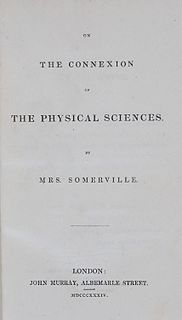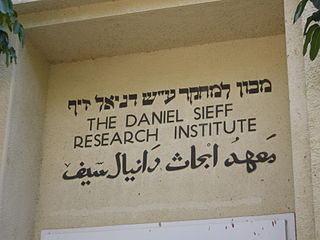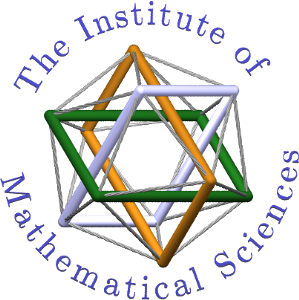
A physicist is a scientist who specializes in the field of physics, which encompasses the interactions of matter and energy at all length and time scales in the physical universe. Physicists generally are interested in the root or ultimate causes of phenomena, and usually frame their understanding in mathematical terms. Physicists work across a wide range of research fields, spanning all length scales: from sub-atomic and particle physics, through biological physics, to cosmological length scales encompassing the universe as a whole. The field generally includes two types of physicists: experimental physicists who specialize in the observation of physical phenomena and the analysis of experiments, and theoretical physicists who specialize in mathematical modeling of physical systems to rationalize, explain and predict natural phenomena. Physicists can apply their knowledge towards solving practical problems or to developing new technologies.

Popular science is an interpretation of science intended for a general audience. While science journalism focuses on recent scientific developments, popular science is more broad-ranging. It may be written by professional science journalists or by scientists themselves. It is presented in many forms, including books, film and television documentaries, magazine articles, and web pages.

The Weizmann Institute of Science is a public research university in Rehovot, Israel, established in 1934, 14 years before the State of Israel. It differs from other Israeli universities in that it offers only graduate and postgraduate degrees in the natural and exact sciences.

The Institute of Mathematical Sciences (IMSc) is a research centre located in Chennai, India.

Oded Goldreich is a professor of Computer Science at the Faculty of Mathematics and Computer Science of Weizmann Institute of Science, Israel. His research interests lie within the theory of computation and are, specifically, the interplay of randomness and computation, the foundations of cryptography, and computational complexity theory. He won the Knuth Prize in 2017.
The MacArthur Fellows Program, also known as the MacArthur Fellowship and commonly but unofficially known as the "Genius Grant", is a prize awarded annually by the John D. and Catherine T. MacArthur Foundation typically to between 20 and 30 individuals, working in any field, who have shown "extraordinary originality and dedication in their creative pursuits and a marked capacity for self-direction" and are citizens or residents of the United States.
The Highest Science and Technology Award also known as the State Preeminent Science and Technology Award, State Supreme Science and Technology Award, or China's Nobel Prize is the highest scientific award issued by the President of the PRC to scientists working in China. The award, given annually each January since 2000, is one of the five State Science and Technology Prizes established by the State Council of the People's Republic of China.
Regev or Regeb is a Jewish name that may refer to:
Lattice-based cryptography is the generic term for constructions of cryptographic primitives that involve lattices, either in the construction itself or in the security proof. Lattice-based constructions are currently important candidates for post-quantum cryptography. Unlike more widely used and known public-key schemes such as the RSA, Diffie-Hellman or elliptic-curve cryptosystems, which could, theoretically, be easily attacked by a quantum computer, some lattice-based constructions appear to be resistant to attack by both classical and quantum computers. Furthermore, many lattice-based constructions are considered to be secure under the assumption that certain well-studied computational lattice problems cannot be solved efficiently.
Parity learning is a problem in machine learning. An algorithm that solves this problem must find a function ƒ, given some samples and the assurance that ƒ computes the parity of bits at some fixed locations. The samples are generated using some distribution over the input. The problem is easy to solve using Gaussian elimination provided that a sufficient number of samples are provided to the algorithm.
Learning with errors (LWE) is the computational problem of inferring a linear -ary function over a finite ring from given samples some of which may be erroneous. The LWE problem is conjectured to be hard to solve, and thus be useful in cryptography.

Aviv Regev is a computational biologist and Executive Vice President of Genentech Research and Early Development. She was professor at the Broad Institute of MIT and Harvard and at the Department of Biology of the Massachusetts Institute of Technology, as well as investigator at the Howard Hughes Medical Institute. She and Sarah Teichmann lead the Human Cell Atlas project.
Stathis K. Zachos is a mathematician, logician and theoretical computer scientist.

Oded Regev is a physicist and astrophysicist, professor emeritus of the Technion, Israel Institute of Technology. He is best known for his theoretical application of fluid dynamics and dynamical systems theory to astrophysics.
In communication complexity, the gap-Hamming problem asks, if Alice and Bob are each given a string, what is the minimal number of bits that they need to exchange in order for Alice to approximately compute the Hamming distance between their strings. The solution to the problem roughly states that, if Alice and Bob are each given a string, then any communication protocol used to compute the Hamming distance between their strings does (asymptotically) no better than Bob sending his whole string to Alice. More specifically, if Alice and Bob are each given -bit strings, there exists no communication protocol that lets Alice compute the hamming distance between their strings to within using less than bits.
Oded Regev is an Israeli-American theoretical computer scientist and mathematician. He is a professor of computer science at the Courant institute at New York University. He is best known for his work in lattice-based cryptography, and in particular for introducing the learning with errors problem.
This page is based on this
Wikipedia article Text is available under the
CC BY-SA 4.0 license; additional terms may apply.
Images, videos and audio are available under their respective licenses.






